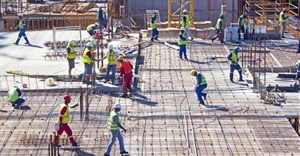Subscribe & Follow
Jobs
- Landscaping Foreman George
- Industrial Engineer - Processes Cape Town
- Junior Graphic Designer Cape Town
- Committee Coordinator Sandton
- Architect Project Manager Cape Town
- General Accounts Clerk Vaal
- QC Learnership Vereeniging
- Buyer Learnership Vereeniging
- Project Lead Johannesburg
- Operations Manager Johannesburg
Two-stage tendering improves construction projects in South Africa

“Two-stage tendering involves practical pre-qualification based on the contractor’s methods, ironing out changes early and reducing issues during execution.”
The concept of two-stage procurement has been in place in South Africa for a while. An example is the two-envelope system used in public sector projects.
This system involves an initial technical proposal without costs, aimed at establishing that tendering companies have the necessary skills and capacity to undertake the project.
Once the bidders have been narrowed down to those with the skills and capacity, the second ‘envelope’ containing costs is considered, providing the ability to rule out contractors who are not proficient.
But two-stage procurement has wider application several broader benefits when used outside of public sector procurement.
Contractor suggestions
Experienced contractors can make suggestions to improve designs to suit constructability, saving money and time, which is always attractive in construction projects.
There is another benefit particular to South Africa in examples where contractors have developed relationships with local communities and subcontractors.
Two-stage procurement can enable the adjudication and negotiation of contracts based on the contractor’s track record in uplifting these local communities.
Although engaging contractors upfront may incur initial costs for mining houses procuring the works, this can avert serious delays and costs later on.
Speed, accuracy and price certainty
In single stage contracting, a main contractor bids on the work based on plans which have been drawn up by the client’s team.
This traditional method gives clients a quick route to starting their project but all too often these designs are incomplete and require design finalisation.
Any steps that can be taken to firm up the scope of work and allow for accurate pricing before the primary construction contract is awarded is an advantage to clients and they will pay a premium to have that certainty as soon as possible.
It also appeals to contractors who want assurances that a simple, well-defined project is going to proceed quickly.
Better scoping, lower risks
On a two-stage contract, a contractor or group of contractors is brought on board to determine, and cost works while carrying out preliminary activities (usually confined to the client’s design team).
They do this while collaborating with the client and supply chain.
If the client, consultant and contractor are working collaboratively from the start, there should be fewer surprises, as their risk assessments should already have factored in higher prices.
The same contractor is not guaranteed to win the second stage, but it is usually in the best interests of both parties for it to continue with the contract.
Two-stage contracts allow the contractor to properly understand the scope, raise questions regarding constructability and other risks such as ground conditions, and to price the work before it starts on site.
Extra costs for extra benefits
Under two-stage contracts, clients will pay more up front before appointing a main contractor.
However, this additional cost should be seen in context – without the early contractor involvement, tendering contractors will include contingency in their prices for the perceived risks in the project, resulting in additional costs to the client.

Even if the contractors do not include these contingencies due to work scarcity for instance, they will pursue variations and claims when changes and risks do materialise, and this will again result in higher costs for the client.
Thus, advocates of two-stage contracts say it is in everyone’s interest to work closely together, citing the fundamental principle that planning ahead can usually save costs later on.
This applies to construction more than most businesses because the costs of delay are so high. As with all relationships it will work far better if the parties work in a genuinely collaborative and trusting way.
Narrow margins, greater risks
Depending on the nature of the works, contractors on a single-stage tender are unlikely to get more accurate pricing than around 10% of the final price.
Overheads and profit will be priced at between 5-10%, making this a high-risk strategy. You’ll be happy if you get it right, but if you get it wrong, it’s a disaster.
With two-stage contracting, clients run the risk that contractors are unrealistic in their initial pitch during the first stage to get into the second stage and then hike up their prices.
“We have advocated for a collaborative approach to contracting and this is crucial in two-stage contracting,” says Massey.
“Contractors operate in a really challenging market with high risk but if the client, consultant and contractor are working collaboratively from the start, there should be fewer surprises, as their risk assessments should already have factored in higher prices.”




















